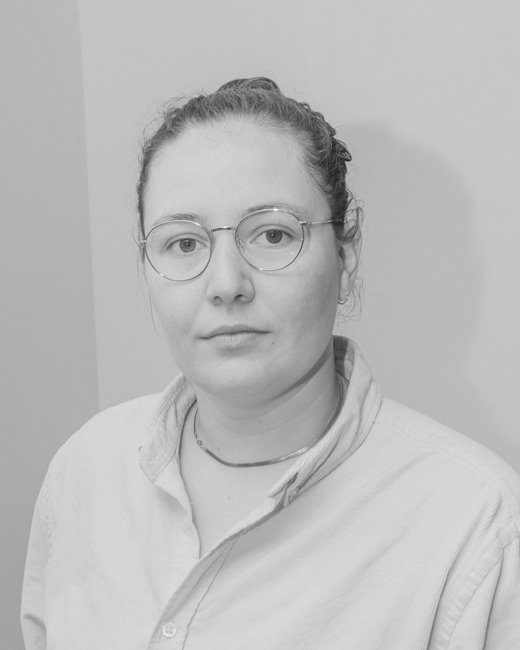Archival images of the crew members of the Apollo-Soyuz Test Project visiting Moscow, Russia in November 1973 (left) and Disney World in Florida, United States in February 1975 (right). The joint operation signaled the end of the space race and marked the beginning of a partnership between the United States and the former Soviet Union, a nation with historically anti-LGBTQI+ views. The background image is a digital negative of stars.
This project combines fiction with fact in order to confront the American space program’s historical exclusion of openly LGBTQI+ astronauts. After reviewing the NASA and United States National Archives, the photographer found no documentation on the contributions of the queer community to the space program. This conspicuous absence inspired her to create The Gay Space Agency, a diverse, inclusive fictional institution that paradoxically commemorates and celebrates the very real history of queer astronauts.
Dr. Sally Ride, the first American woman in space, said, "You can't be what you can't see,” a statement that took on new meaning after her passing in 2012. Despite her groundbreaking achievements, Dr. Ride's sexual orientation was kept private during her lifetime. Her story is a part of the history of the pervasive culture of silence within the space program.
NASA’s policy of silence and exclusion continues to have an effect today. A 2022 study revealed that LGBTQI+ NASA astronauts perceived that being open about their identity could jeopardize their chances of being selected for space missions. This project intricately knits together past, present, and future to highlight the struggles faced by LGBTQI+ individuals within the space industry and underscore the urgent need for greater representation and inclusivity.
Through a blend of archival documentation, manipulated imagery, staged photos, and collage, this project offers both a critical examination of historical realities and a visionary glimpse into a more inclusive future. By layering images in a manner reminiscent of the visual language of space exploration, the project invites viewers to reconsider the past while imagining new possibilities for LGBTQI+ representation on this planet and beyond.
Project funded with support from the Magnum Foundation Counter Histories Grant.
Are you a photographer and/or passionate about press freedom? Sign up for our newsletter to stay updated on our annual contest and to hear about exhibitions near you.

